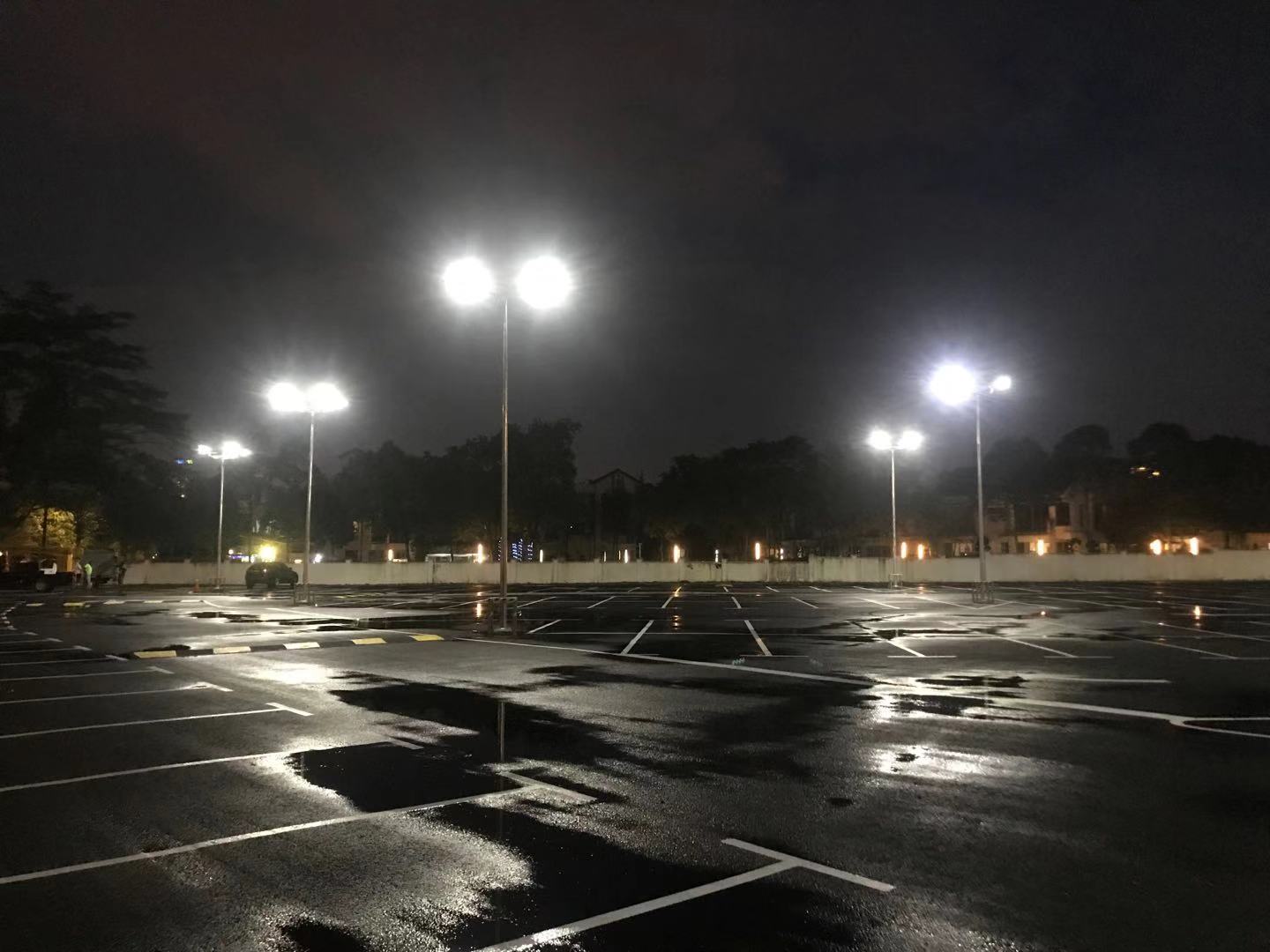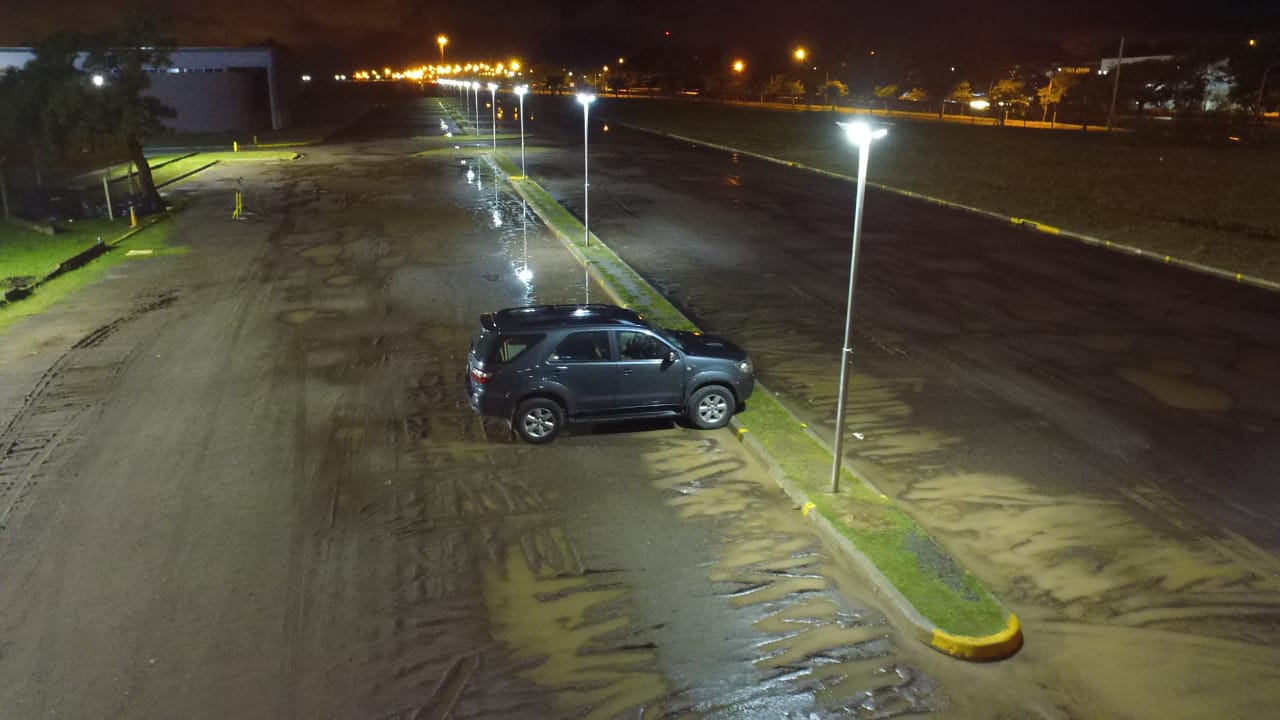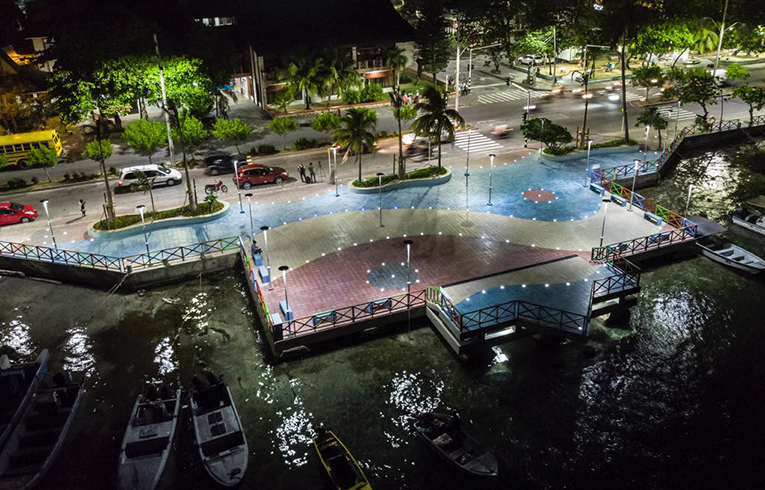Are you looking to light up your home with solar lights, but not sure if they will keep working even when the weather turns cloudy and rainy? You’re in the right place! In this blog post, we’ll discuss all you need to know about how solar lights charge on cloud cover and rain. We’ll go through the different types of components used for picking up energy from sunrays as well as a range of other important factors that can influence whether or not your solar-powered lights will stay energized during inclement weather. Ready to learn more? Let’s get started!
Do Solar Lights Charge on Cloudy Days and Rainy Days?
Yes, solar lights can charge on cloudy and rainy days, but the charging efficiency will be lower compared to sunny days. Solar panels can still absorb diffused sunlight that penetrates through clouds or rain, but the intensity of the sunlight is reduced, leading to slower battery charging.
On cloudy or rainy days, the charging time for solar lights may be longer, and the battery may not reach its full capacity. As a result, the solar lights might not last as long during nighttime or have a weaker light output.
To maximize the performance of your solar lights on cloudy or rainy days:
-
Ensure optimal placement: Place your solar lights in an area that receives the most sunlight possible throughout the day, even during cloudy weather. Avoid locations with significant obstructions that could cast shadows on the solar panel.
-
Keep solar panels clean: Regularly clean the solar panels to remove dirt, dust, or debris that could further reduce the amount of sunlight absorbed on cloudy or rainy days.
-
Choose high-quality solar lights: Invest in solar lights with high-quality solar panels and batteries that can store more energy and perform better under low-light conditions.
-
Use energy-saving mode: Some solar lights come with an energy-saving mode or dimming feature that reduces the light output to conserve battery life during periods of reduced charging.

Factors That Influence Charging Performance
-
Sunlight exposure: Solar panels require direct sunlight for optimal performance. The intensity, duration, and angle of sunlight exposure directly affect the charging efficiency. Obstructions like trees, buildings, or shadows can reduce the amount of sunlight reaching the solar panel, leading to slower charging.
-
Weather conditions: Cloudy, rainy, or foggy days can reduce the intensity of sunlight, resulting in lower charging efficiency. While solar panels can still absorb diffused sunlight under these conditions, the charging process will be slower, and the battery may not reach its full capacity.
-
Solar panel quality: The quality of the solar panel significantly impacts the charging performance. Higher-quality solar panels with better materials and construction can convert sunlight into electricity more efficiently, even under less-than-ideal conditions.
-
Solar panel cleanliness: Dirt, dust, and debris accumulated on the solar panel’s surface can reduce its ability to absorb sunlight and decrease charging efficiency. Regular cleaning of the solar panel is essential to maintain optimal performance.
-
Battery capacity and quality: The battery’s capacity and quality play a crucial role in the overall charging performance. A battery with a higher capacity can store more energy, ensuring longer runtime during nighttime. High-quality batteries also have a longer lifespan and better charging efficiency.
-
Temperature: Extreme temperatures can affect the charging performance of solar lights. High temperatures may cause the solar panel’s efficiency to decrease, while low temperatures can reduce the battery’s ability to hold a charge.
-
Age of the solar light: Over time, the components of solar lights, such as solar panels and batteries, can degrade, leading to reduced charging efficiency and performance. Regular maintenance and timely replacement of worn-out components can help extend the lifespan of your solar lights.
Tips To Maximize Charging Performance On Cloudy or Rainy Days
Maximizing the charging performance of solar lights on cloudy or rainy days can be challenging due to reduced sunlight intensity. However, there are several tips you can follow to improve the charging efficiency and ensure your solar lights continue to function effectively even during unfavorable weather conditions:
-
Optimal placement: Place your solar lights in a location that receives the most sunlight possible throughout the day, even during cloudy or rainy weather. Avoid areas with significant obstructions like trees or buildings that could cast shadows on the solar panel.
-
Adjust the solar panel angle: Some solar lights allow you to adjust the angle of the solar panel. Position the panel to face the sun directly or at an optimal angle to capture the maximum amount of sunlight during the day.
-
Keep solar panels clean: Regularly clean the solar panels to remove dirt, dust, or debris that could further reduce the amount of sunlight absorbed on cloudy or rainy days. A clean solar panel will perform better under low-light conditions.
-
Choose high-quality solar lights: Invest in solar lights with high-quality solar panels and batteries that can store more energy and perform better under low-light conditions. Look for solar lights with features like energy-saving mode or dimming options to conserve battery life during periods of reduced charging.
-
Monitor battery charge: Check the battery charge level periodically to ensure it is charging as expected. If the battery isn’t charging well during cloudy or rainy days, consider using a backup battery or an alternative charging method, such as a solar charger or power bank.
-
Upgrade to a larger solar panel: If your solar light allows for it, consider upgrading to a larger solar panel with higher wattage to increase the charging efficiency under low-light conditions.
-
Use energy-saving mode: Some solar lights come with an energy-saving mode that reduces the light output to conserve battery life during periods of reduced charging. Utilize this feature to extend the runtime of your solar lights during cloudy or rainy days.

Benefits of Using Solar Lights Regardless of Weather Conditions
-
Eco-friendly: Solar lights rely on renewable energy from the sun, reducing the dependence on non-renewable resources like fossil fuels. This helps decrease greenhouse gas emissions and promotes a cleaner environment.
-
Energy savings: Solar lights can significantly reduce your energy consumption and electricity bills, as they do not draw power from the grid. Even during cloudy or rainy days, solar lights can still absorb diffused sunlight to charge their batteries and provide illumination at night.
-
Low maintenance: Solar lights generally require minimal maintenance, as they have fewer moving parts and use LED bulbs that last for a long time. Regular cleaning of the solar panel and occasional battery replacement are the primary maintenance tasks.
-
Easy installation: Solar lights do not require complex wiring or connections to the electrical grid, making installation quick and straightforward. They can be easily moved or repositioned as needed without the hassle of rewiring.
-
Safety: Solar lights eliminate the risk of electric shocks or short circuits, as they operate at low voltage and do not rely on external power sources. This makes them a safer option for outdoor lighting, especially in wet or damp conditions.
-
Versatility: Solar lights come in various designs and styles, suitable for diverse applications like garden lighting, pathway illumination, security lighting, and decorative purposes. They can be used in remote or off-grid locations where access to electricity is limited.
-
Reliability: High-quality solar lights with efficient solar panels and batteries can provide consistent performance even during unfavorable weather conditions like cloudy or rainy days. By choosing the right solar light and following proper maintenance practices, you can ensure reliable operation throughout the year.

Additional Questions to Ask Before Purchase
Before purchasing solar lights, it’s essential to consider several factors to ensure you choose the right product for your needs. Here are some additional questions to ask before making a purchase:
- What is the purpose of the solar light?
Determine your primary goal for using solar lights, such as security, decoration, or pathway illumination. This will help you select a solar light with the appropriate features and specifications.
- How much sunlight does the installation area receive?
Consider the amount of sunlight the intended location receives throughout the day. This will help you determine the appropriate solar panel size and battery capacity needed for optimal performance.
- What is the required brightness and runtime?
Depending on your needs, you may require solar lights with different brightness levels and runtime durations. Look for solar lights with adjustable brightness settings or motion sensors to conserve energy when not in use.
- Are the solar lights weather-resistant?
Ensure the solar lights you choose are designed to withstand various weather conditions, such as rain, snow, and extreme temperatures, to guarantee durability and longevity.
- What is the quality of the materials and components?
High-quality solar lights with efficient solar panels, long-lasting batteries, and durable materials are more likely to perform well and last longer.
- What is the installation process like?
Consider how easy or difficult the solar lights are to install and whether you can do it yourself or require professional assistance.
- What is the warranty and after-sales support?
Check if the solar lights come with a warranty, and inquire about the manufacturer’s after-sales support and customer service to ensure you have access to assistance if needed.
- What is the budget?
Determine your budget for solar lights and compare the features, quality, and performance of various options within your price range.
In conclusion, solar lights are a great choice for outdoor lighting because they are energy efficient and environmentally friendly. Solar lights derive their energy from the sun without any need for external power sources. If you have any additional questions about solar lighting before purchasing , be sure to ask! Contact our product managers for more professional sourcing solutions!
Table of Contents